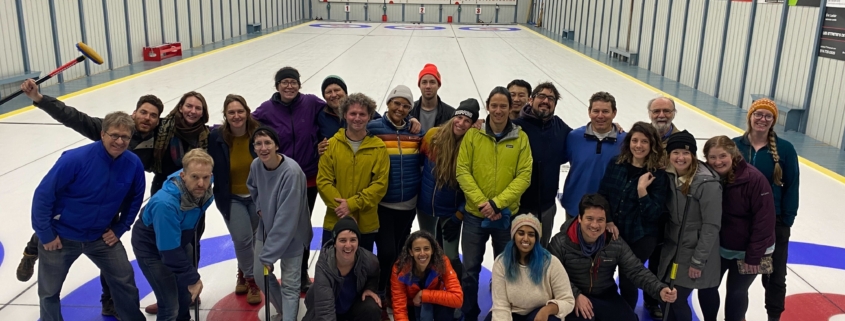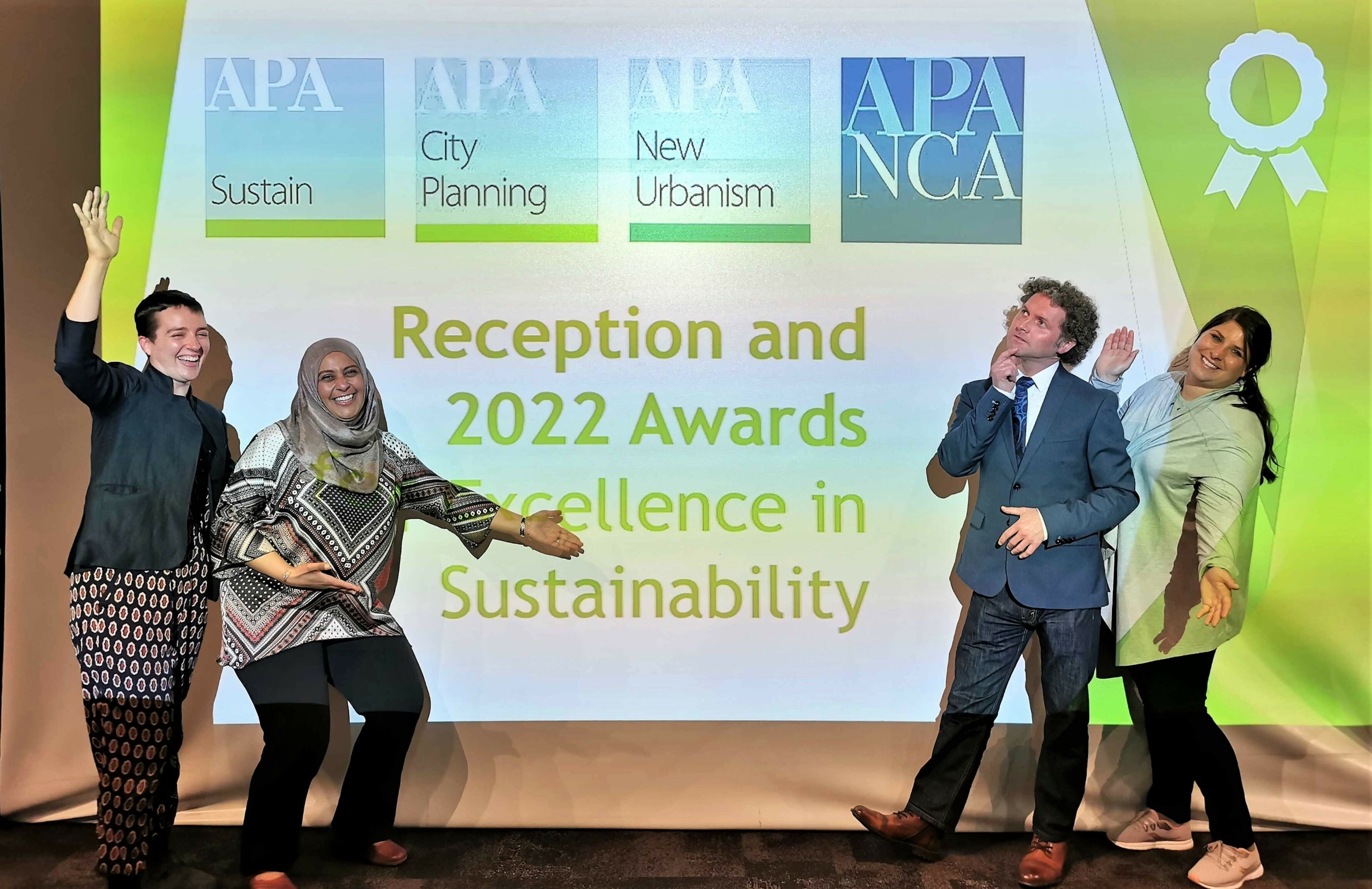Snapshot: A Year at SSG
Looking backward and forward
With the start of the New Year we reflect on how we navigated the year past and what we have to look forward to in 2023. 2022 saw us creating new models, bringing on a host of new faces, and starting projects in new places (Chile! Argentina! Uruguay!). Two decades on, SSG continues to forge new paths toward a decarbonized and equitable future.
Our team keeps growing (in breadth and scope)
We are over-the-moon to share that SSG has officially merged with our longtime partner, whatIf? Technologies, under the SSG name. Our team’s diversity of expertise and knowledge continues to grow. We’ve also hired more consultants across the Americas, a MarComms specialist, a graphic designer, and a proposal coordinator. Our Chile office is in full gear, having expanded from a team of 2 to 8. We also have a new knowledge management system and even a resource curator to ensure that we are always applying the latest and best information.
We continue to evolve our unique decision-making and organizational structure, ensuring a highly collaborative and empowering working environment. Similar to a sociocratic model, our structure is organized around thematic and action-based clusters. Representatives from each cluster coordinate activities across the organization. We continue to refine our structures to improve inclusivity and effectiveness in our decision making.
Oh the places we have gone (and will go!)
We continue to be “foolishly optimistic” about sustainable cities, working on more than 50 projects going into 2023. This year we started our first Chilean climate action plan with the Aysen Region in Patagonia, as well as our first project with a Chilean municipality—an Integrated Waste Management Strategy for Melipilla.
We are conducting a methane assessment for South America with the Global Methane Hub , an effort to bend the curve of increasing atmospheric methane concentrations. This work gave rise to Chile’s national methane commitment, launched at COP27 in Egypt, as well as targets for Argentina and Uruguay.
In a project for the UN agency CEPAL, we developed social cost of carbon numbers for Chile, Costa Rica, Nicaragua, Dominican Republic, and Perú. These will be used to ensure policy development considers climate change damage costs or the value of avoided damages.
We’re also excited about our ongoing work in the United States where we’ve had the opportunity to work at the state level on projects in Washington and Oregon. Scenarios we modelled to support the Oregon Global Warming Commission’s Roadmap to 2035 demonstrated rare good news: current policies put the State on track for its current GHG targets.Additional efforts could achieve targets five years earlier. 2022 closed with the final meeting of Oregon’s Joint Task Force on Resilient Efficient Buildings, which we supported with technical modelling. Stay tuned for our webinar on the findings from this analysis and for the results of a parallel analysis for Washington State.
In another pioneering project for municipalities in North America, SSG is working with Boulder, Colorado to develop a Land-Based Carbon Inventory. This project will identify nature-based solutions that improve climate resilience. This project joins other action plans that we are working on in Lakewood (Ohio), Ames (Iowa), and Denton (Texas). This geographic diversity demonstrates the will to take action in every corner of the US.
Transformational Plans From Sea to Sea
In Canada, we completed a number of remarkable 2022 climate action plans. In ReCharge Hamilton, we plotted a path to net zero emissions that led to ArcelorMittal— the largest steel plant in Hamilton — announcing one of the most ambitious decarbonization efforts in Canada.
Some other notable plans we worked on include:
- Halton Hills, Ontario developed one of the most ambitious climate action plans in Canada, targeting net zero by 2030.
- Carbon Free Colchester, Nova Scotia was a great example of a path to decarbonize a rural community. It included a retrofit program called Cozy Colchester, which was fully subscribed in a matter of days.
- In Moncton, New Brunswick the ambitious climate action plan caused a stir in the media due to the level of investments required.
Other plans we worked on in 2022 include New Westminster, Orillia, North Vancouver, Calgary, Tacoma, Kelowna, Regina, Winnipeg, and an update for North Cowichan. We were buoyed by the ambitious Councils we worked with, many of whom passed these plans unanimously.
Helping Operationalize Ambitious Climate Plans
We were recognized with an American Planning Association (APA) award for our work on Edmonton’s carbon budget—the first in Canada—which functioned as we hoped, highlighting the imperative to closely align financial budgets with GHG targets.
In the Town of Whitby, SSG determined the anticipated financial costs of climate change damages, enabling the assignment of dollar values to a resilience strategy. Whitby’s Council also passed a costed plan to decarbonize its operations by 2045, directly aligning its capital forecast with its carbon budget—one of the first such projects in Canada. In a related project, we also developed a custom corporate energy and emissions model for Edmonton to guide their ambitious decarbonization program.
In the policy sphere, SSG is helping Mississauga and Caledon to develop Green Development Standards, which align future development with ambitious climate goals, overcoming the uncertainty resulting from a new bill which removes site planning authorities from Ontario municipalities. We also worked to embed climate action in Official Community Plans in Courtenay, Nanaimo, Sooke, Ladysmith, Edmonton, Hamilton, Region of Waterloo, Region of Durham, and Region of Halton Hills, because land-use planning is climate change planning.
If 2022 was the year of climate action plans, 2023 will be the year of implementation. Some notable opening moves of 2022 included Halifax’s dedicated tax increase for climate action and Ottawa’s high performance development standard. There will be interesting advances in data, inventories, and carbon budgeting as we shift from planning to implementation.
SSG continued our history of working with higher education, developing a climate action plan for the University of Manitoba and sustainable design guidelines for its future building projects.
Challenges Abound
The climate crisis and all of its dimensions hang over our work, but these are countered by the inspiring efforts and dedications of the communities in which we work. The design and implementation of a democratically-controlled consultancy with the ebbs and flows of work is a continual work in progress. We are constantly searching for, testing, and refining new ideas and insights for application with our partners—cities, universities, provinces, national governments—to not just move but leap forward, as the climate crisis requires. We are grateful for the trust and latitude that our clients give us, as we work collaboratively on this shared challenge.
Stay Tuned
We continue to identify opportunities to advance climate action planning in all of the areas in which we work. Watch out for the following projects, which will be launched with partners or clients in 2023:
- An update to the MEED platform to enable municipalities to complete GHG inventories
- A new GHG emissions calculator for municipal projects
- An emissions and costing scenario planning tool for proposed land-use developments
- A novel approach to consumption-based GHG emissions
- A systematic approach to implementation of climate action plans
Thank you for all the great things we accomplished together in 2022. We can’t wait to see what climate action progress we will make with you in 2023!





